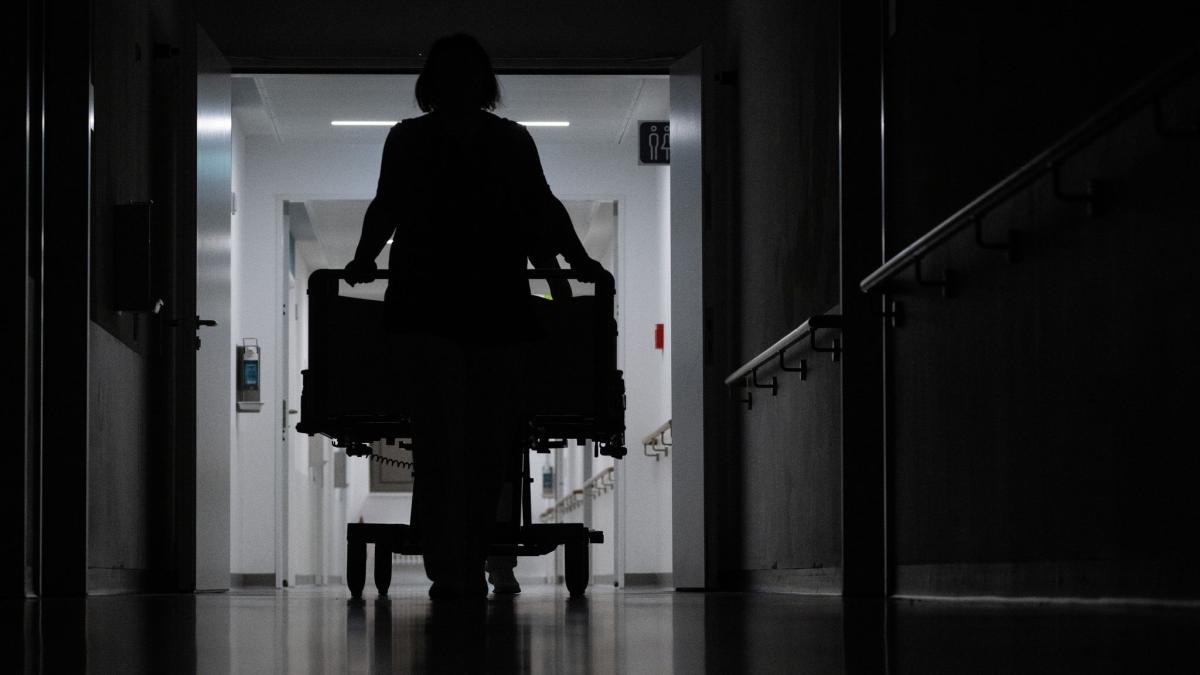
The number of nursing cases will increase – and nursing care insurance will become more expensive
Exclusive
According to Health Minister Karl Lauterbach, the Medical Service of the Health Insurance Funds is also warning of significantly more people in need of care. The number of applications is rising sharply.
The Medical Service of the Health Insurance Funds (MDK) expects a further significant increase in the number of nursing cases in Germany due to the increase in dementia. “According to estimates, the number of people with dementia will continue to rise sharply in the future if no breakthrough is achieved in therapy and prevention,” said MDK deputy federal board chairwoman Carola Engler to our editorial team. Last year, the nursing insurance fund assessors had to process 160,000 more initial applications than in the previous year.
“In 2023, we saw a significant increase in initial applications from 1.19 million to 1.35 million,” said Engler. This represents an increase of 13 percent compared to the previous year. “This increase occurred across all age groups, but it cannot be limited to the baby boomers,” explained the deputy chairwoman of the Federal Medical Service. “The reasons for this increase are currently unclear,” emphasized Engler. However, the major nursing reform of 2017 would also have an impact.
With baby boomers, application numbers will soon continue to rise
Since the change from three care levels to five care levels, mental and cognitive impairments such as dementia have been taken much more into account when determining the need for care. “That was an explicit goal of the reform,” emphasized Engeler. “As life expectancy increases, the number of people who develop the ‘old age disease’ dementia in the course of their lives also increases,” she explained. Population development also affects other areas. “As a result of demographic change, we are observing a steady increase in the number of benefit recipients,” said Engler. Accordingly, the medical service is carrying out more assessments. “With the particularly strong generation of the so-called baby boomers, the number of applications will increase noticeably again in the coming years,” predicted Engler.
The MDK federal vice-chair stressed that it was also unclear whether the sharp increase in 2023 was just an outlier, for example as a late consequence of the corona pandemic. “We can only speculate about possible special effects at the moment,” said Engler. “The fact is that the assessment process has not changed since 2017,” she emphasized. “During the pandemic and since November 2024, the Medical Service has the option of conducting structured telephone and video interviews in addition to home visits under certain conditions,” explained Engler. The assessment itself, the criteria and requirements for determining the need for care are unchanged. “There is no evidence that the introduction of new formats has an influence on the increase in the number of benefit recipients,” explained the MDK representative.
Nursing care insurance threatens to become more expensive
Citizens and employers must prepare for further increases in nursing care insurance contributions. “It is clear that we need a more solid form of financing for nursing care in the medium and long term,” said the Federal Minister of Health. Karl Lauterbach (SPD) to the German editorial network and added: “With the current contribution system alone, we will not be able to maintain the level of care services.” The German Social Association, however, warned against increasing care contributions any further. “Especially in times of exploding costs, people have long been at their limit – including when it comes to social security contributions,” SoVD boss Michaela Engelmeier told our editorial team.
Read also
Lauterbach spoke of an “explosive” increase in the number of people in need of care. Instead of the expected 50,000, there was an increase of more than 360,000 last year, said the SPD politician. A ministry spokeswoman explained that the figure of 50,000 was a forecast “that we are making based on demographic developments.”
Lauterbach miscalculates
Lauterbach was clearly mistaken. The GKV umbrella association stated that the number of people in need of care has increased by an average of around 326,000 every year since 2017. In 2023, there was an above-average increase of 361,000 people in need of care. In other words, an increase of 35,000, not 360,000 people in need of care.
The major professional associations have long been warning of a collapse in the nursing care sector. “The security of care in long-term care is at acute risk,” the Diakonie, for example, raised the alarm last year. SoVD CEO Engelmeier added that the emergency applies “both to the inpatient sector, but also to the approximately 80 percent of all those in need of care who are cared for by relatives and friends.”
Care contribution must increase
The contribution to long-term care insurance is 3.4 percent of gross income, or 4 percent for those without children, and has doubled since 2005 (employers pay 1.7 percent). This should actually remain stable until 2025, but experts believe this is unrealistic. An increase in contributions is likely as early as this year, warned the DAK, for example, recently, pointing to significant funding gaps for the fourth quarter of 2024.
However, increases in contributions before a federal election are putting a damper on the mood, and it is currently unclear whether the traffic light coalition will really dare to go down this path. Lauterbach has set up a working group that will finalize its report at the end of May, as his spokeswoman explained. The minister, however, was skeptical. A “comprehensive financial reform in nursing care will probably no longer be possible in this legislative period,” he said in an RND interview.
Greens want fair regulation: “Inability of the traffic light coalition”
The health policy spokesman for the CDU/CSU parliamentary group, Tino Sorge, then spoke of a “declaration of bankruptcy in care policy”. If Lauterbach demands a reform from the next federal government, “he is thereby admitting the inability of the traffic light coalition,” said the CDU politician. The Bavarian Health Minister Judith Gerlach (CSU) stated: “This capitulation by Lauterbach is irresponsible.”
The Greens in the Bundestag cautiously distanced themselves from Lauterbach’s statements. “More important than personal assessments or snapshots” is a timely presentation of the working group results, said parliamentary group vice-chair Maria Klein-Schmeink. In order to ensure fair and reliable financing of care, it is necessary, among other things, to finance irrelevant services such as pension contributions for caring relatives from tax revenue.

Ethel Purdy – Medical Blogger & Pharmacist
Bridging the world of wellness and science, Ethel Purdy is a professional voice in healthcare with a passion for sharing knowledge. At 36, she stands at the confluence of medical expertise and the written word, holding a pharmacy degree acquired under the rigorous education systems of Germany and Estonia.
Her pursuit of medicine was fueled by a desire to understand the intricacies of human health and to contribute to the community’s understanding of it. Transitioning seamlessly into the realm of blogging, Ethel has found a platform to demystify complex medical concepts for the everyday reader.
Ethel’s commitment to the world of medicine extends beyond her professional life into a personal commitment to health and wellness. Her hobbies reflect this dedication, often involving research on the latest medical advances, participating in wellness communities, and exploring the vast and varied dimensions of health.
Join Ethel as she distills her pharmaceutical knowledge into accessible wisdom, fostering an environment where science meets lifestyle and everyone is invited to learn. Whether you’re looking for insights into the latest health trends or trustworthy medical advice, Ethel’s blog is your gateway to the nexus of healthcare and daily living.



